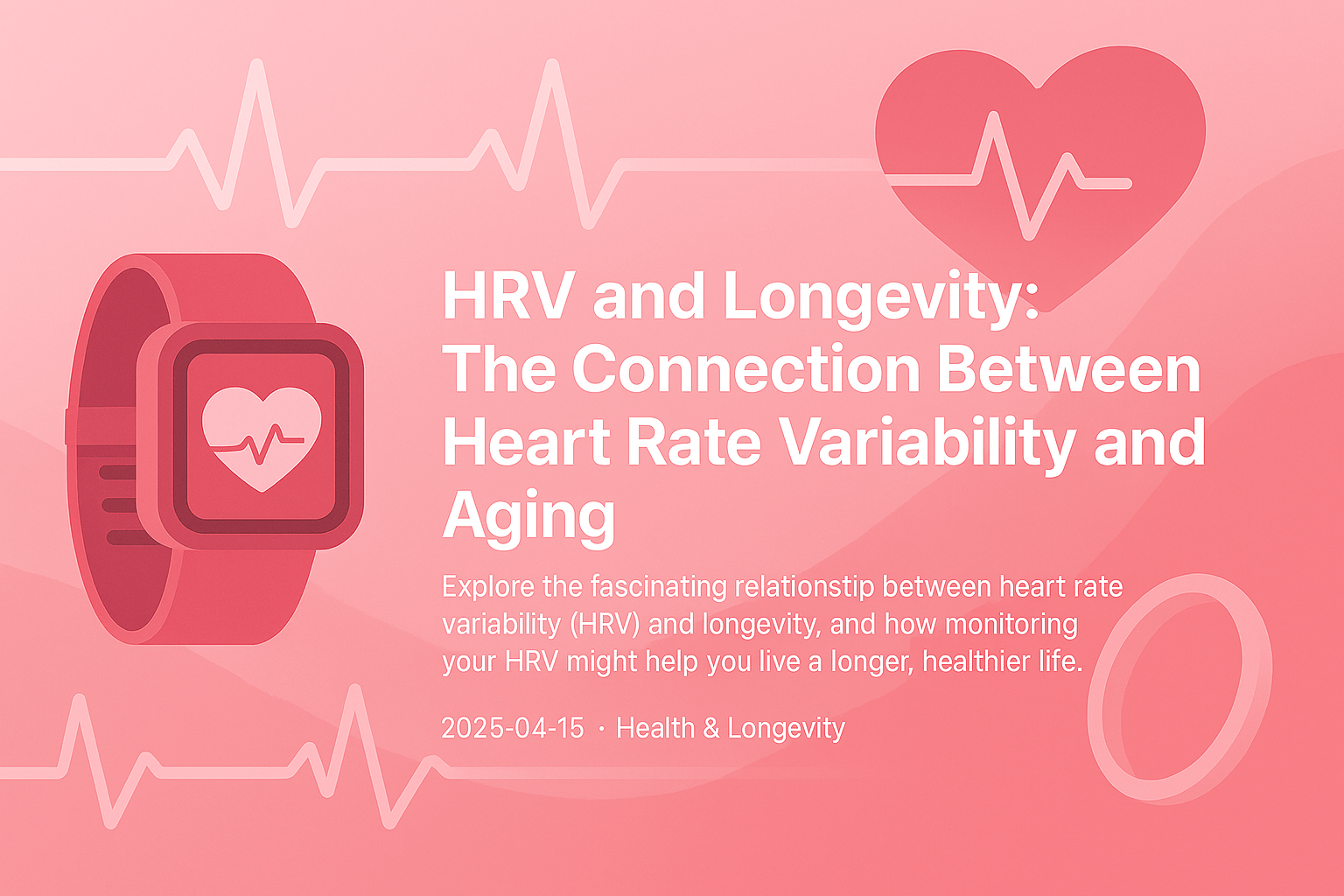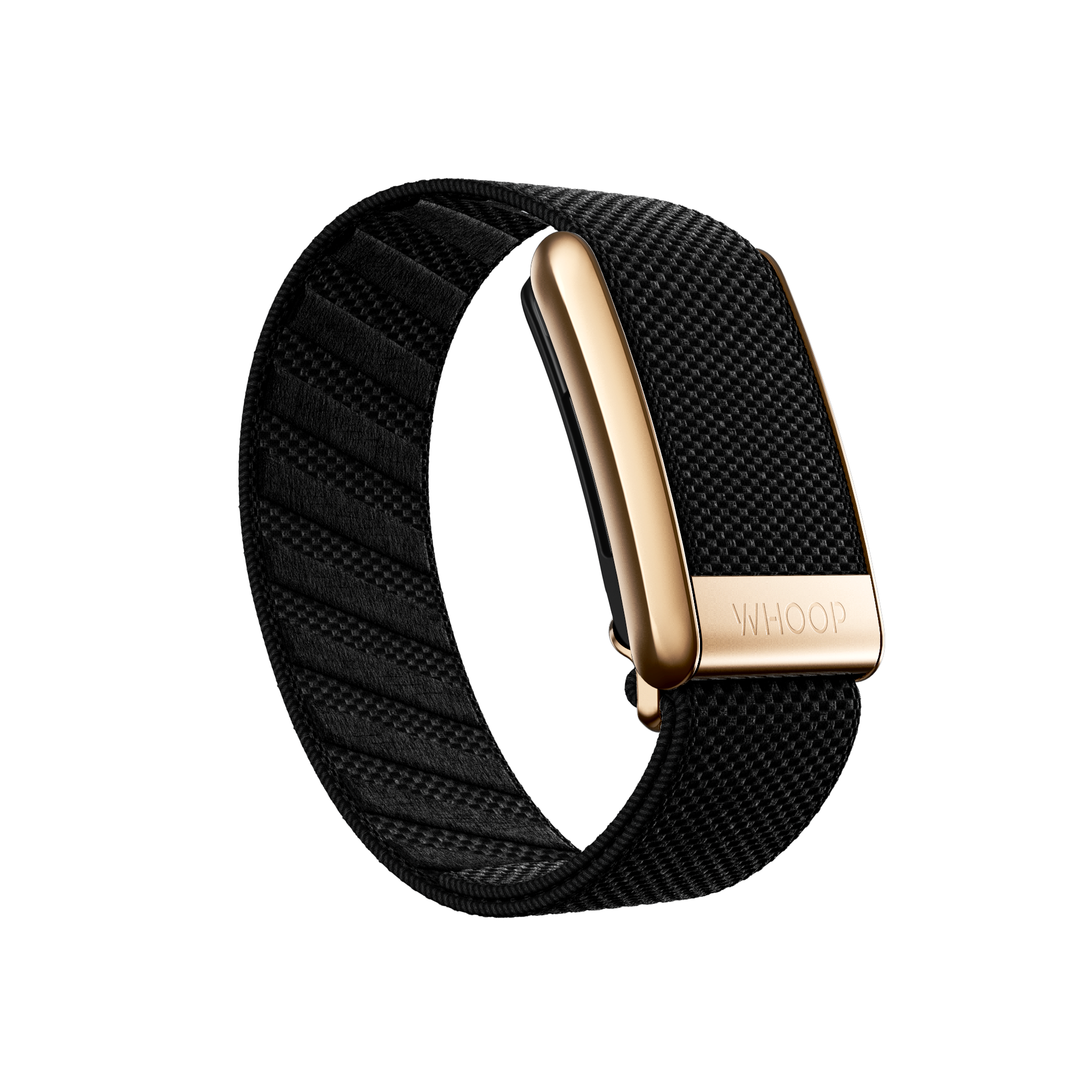HRV and Longevity: The Connection Between Heart Rate Variability and Aging

Ready to start tracking your HRV? Check out our top picks: Whoop | Oura Ring | Polar H10
HRV and Longevity: The Connection Between Heart Rate Variability and Aging
In the quest for a longer, healthier life, researchers have identified numerous biomarkers that correlate with longevity. Among these, heart rate variability (HRV) stands out as one of the most promising indicators of not just cardiovascular health, but overall biological age and longevity potential.
Understanding the HRV-Longevity Connection
Heart rate variability, the variation in time between successive heartbeats, reflects the balance between your sympathetic ("fight or flight") and parasympathetic ("rest and digest") nervous systems. This balance, or autonomic flexibility, appears to be strongly linked to longevity for several compelling reasons.
HRV as a Biological Age Marker
While chronological age counts the years you've been alive, biological age measures how well your body functions relative to established norms. Research increasingly suggests that HRV serves as an excellent marker of biological age:
- A 2018 study published in the Journal of the American Heart Association found that higher HRV was associated with lower biological age, independent of chronological age.
- Individuals with higher HRV consistently demonstrate physiological resilience typically seen in people 5-10 years younger.
- The rate of HRV decline over time predicts mortality risk better than many traditional risk factors.
Why Autonomic Balance Matters for Longevity
The autonomic nervous system regulates nearly every involuntary process in your body - from digestion and immune function to cardiovascular activity and stress response. When this system maintains healthy flexibility (reflected in higher HRV), it creates a physiological environment conducive to longevity:
-
Reduced Inflammation: Higher HRV correlates with lower levels of inflammatory markers like C-reactive protein and interleukin-6, which are associated with accelerated aging and age-related diseases.
-
Improved Stress Resilience: Better autonomic balance allows for more efficient recovery from stressors, preventing the chronic stress response that accelerates cellular aging.
-
Enhanced Cellular Repair: The parasympathetic state associated with higher HRV promotes cellular regeneration and repair processes that are essential for longevity.
The Research: HRV as a Predictor of Lifespan
The connection between HRV and longevity is supported by a growing body of research:
Framingham Heart Study Findings
The landmark Framingham Heart Study, which has followed participants for decades, found that lower HRV was associated with increased mortality risk, even after adjusting for traditional cardiovascular risk factors.
Meta-Analysis Results
A meta-analysis of 21 studies including over 15,000 participants concluded that individuals with higher HRV had a 40% lower risk of death from all causes compared to those with lower HRV.
Centenarian Studies
Research on centenarians (people who live to 100+ years) reveals that they typically maintain higher HRV than age-matched controls, suggesting that preserved autonomic function may contribute to exceptional longevity.
How HRV Changes With Age
Understanding the typical trajectory of HRV throughout the lifespan provides context for its relationship with aging:
The Natural Decline
HRV typically peaks in early adulthood and gradually declines with age. This decline reflects natural changes in autonomic function and cardiovascular health:
- Ages 20-30: Peak HRV for most individuals
- Ages 30-50: Gradual decline (approximately 3-5% per decade)
- Ages 50+: More pronounced decline (approximately 5-10% per decade)
Individual Variation
While the general trend shows decline, individual trajectories vary significantly. Some people maintain youthful HRV levels well into their later years, while others experience accelerated decline. This variation appears to correlate strongly with health outcomes and longevity.
Strategies to Improve HRV for Longevity
The good news is that HRV is highly responsive to lifestyle interventions. Here are evidence-based strategies to improve your HRV and potentially extend your healthspan:
1. Regular Aerobic Exercise
Consistent cardiovascular exercise is one of the most effective ways to improve HRV:
- Aim for 150+ minutes of moderate-intensity aerobic activity weekly
- Include some high-intensity interval training (HIIT) for maximum HRV benefits
- Avoid overtraining, which can temporarily suppress HRV
2. Stress Management Practices
Chronic stress significantly impairs HRV and accelerates biological aging:
- Meditation: Even 10 minutes daily can improve HRV within weeks
- Breathing Exercises: Practices like box breathing and resonance frequency breathing directly stimulate vagal tone and improve HRV
- Nature Exposure: Spending time in natural environments has been shown to boost HRV
3. Sleep Optimization
Quality sleep is essential for HRV recovery and maintenance:
- Aim for 7-9 hours of uninterrupted sleep
- Maintain consistent sleep-wake schedules
- Create a cool, dark sleeping environment
- Limit screen time before bed
4. Nutrition for Autonomic Health
Dietary patterns significantly impact HRV:
- Mediterranean Diet: Associated with higher HRV in multiple studies
- Omega-3 Fatty Acids: Fish oil supplementation has been shown to improve HRV
- Polyphenol-Rich Foods: Berries, dark chocolate, and green tea may support better HRV
- Intermittent Fasting: Some research suggests time-restricted eating patterns may improve autonomic balance
5. Cold Exposure
Controlled cold exposure stimulates the parasympathetic nervous system:
- Cold showers (ending your shower with 30-60 seconds of cold water)
- Cold water immersion (ice baths or cold plunges)
- Cryotherapy sessions
Monitoring Your HRV for Longevity Insights
To leverage HRV as a longevity biomarker, consistent monitoring is essential:
Recommended Devices
Several consumer devices provide reliable HRV measurements:
- Whoop: Offers detailed HRV recovery metrics and age comparisons

Interpretation for Longevity
When monitoring HRV for longevity insights:
-
Establish Your Baseline: Collect at least 2-3 weeks of data to understand your personal HRV range.
-
Track Long-Term Trends: Monthly and yearly trends are more important than day-to-day fluctuations.
-
Compare to Age Norms: Some devices provide comparisons to age-matched populations, helping you understand if your HRV suggests a younger or older biological age.
-
Monitor Rate of Change: The rate at which your HRV changes over time may be more important than absolute values.
Case Studies: HRV and Exceptional Aging
The 80-Year-Old Triathlete
John, an 80-year-old triathlete, maintains an average HRV of 48ms, comparable to many healthy 50-year-olds. His lifelong commitment to endurance training, stress management through daily meditation, and consistent sleep habits have preserved his autonomic function well beyond typical age expectations.
The Meditation Master
Research on long-term meditation practitioners in their 70s found HRV measurements comparable to those of healthy individuals in their 40s, suggesting that consistent mental practices can preserve autonomic function despite advancing chronological age.
The Future of HRV in Longevity Medicine
As longevity research advances, HRV is likely to play an increasingly important role:
Personalized Aging Interventions
Researchers are developing algorithms that use HRV patterns to recommend personalized interventions for slowing biological aging.
Predictive Health Models
Advanced HRV analysis may soon help predict age-related disease risk years before symptoms appear, allowing for earlier preventive measures.
Integration with Other Biomarkers
The most promising approach combines HRV with other longevity biomarkers like telomere length, DNA methylation patterns, and inflammatory markers to create comprehensive biological age assessments.
Conclusion
The relationship between heart rate variability and longevity represents one of the most accessible windows into biological aging. By understanding and improving your HRV through evidence-based lifestyle interventions, you may not only add years to your life but life to your years.
While HRV is just one piece of the longevity puzzle, its strong correlation with overall health and its responsiveness to positive lifestyle changes make it an invaluable tool for anyone interested in extending their healthspan.
Ready to start tracking your HRV as a longevity biomarker? Check out our top recommended devices:
- Shop Oura Ring - Best for continuous, non-intrusive monitoring
- Shop Whoop - Best for detailed recovery and strain metrics
- Shop Polar H10 - Best for precise, clinical-grade measurements
Note: This post contains affiliate links. We may earn a commission if you make a purchase through these links at no additional cost to you.
Ready to improve your health with HRV monitoring?
Check out our top recommended devices below and start your journey to better health today.